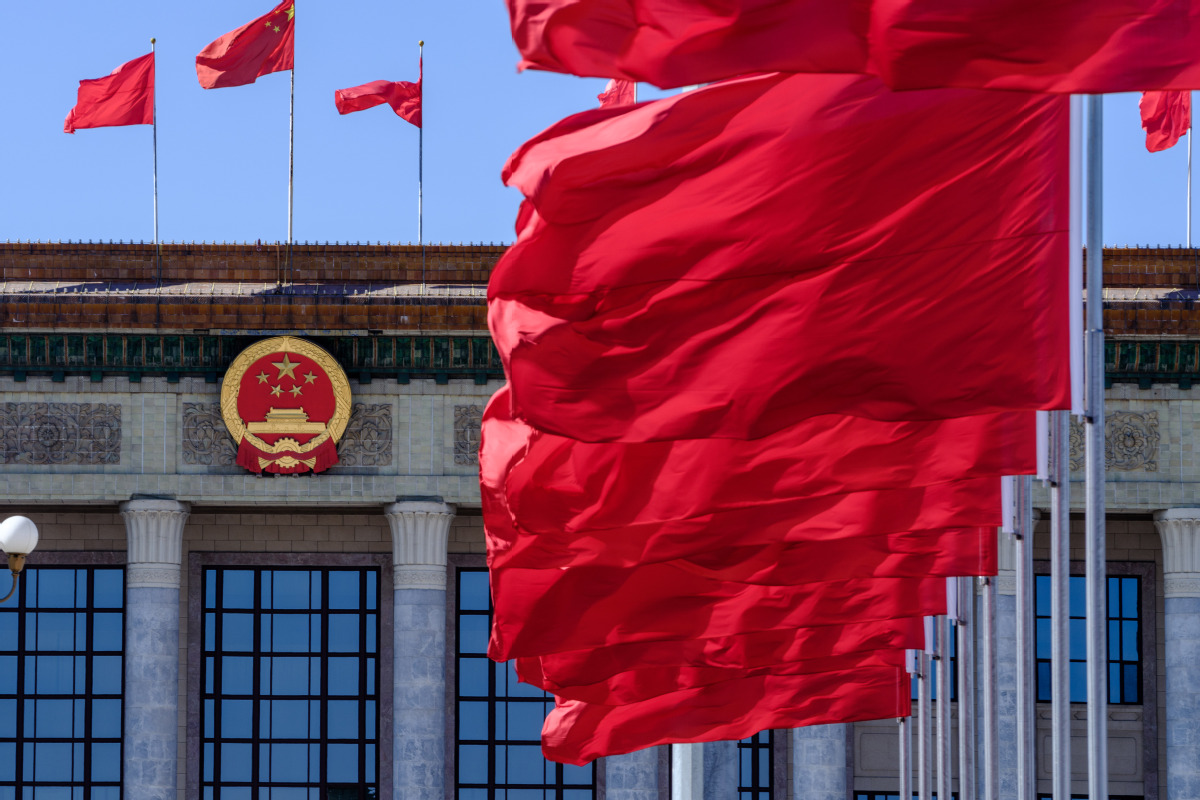Peking University, March 2, 2022: China's paramount vision of achieving common prosperity is not about robbing the rich and helping the poor, but rather about establishing a more scientific system to properly arrange the redistribution of "a bigger cake", experts said.
The Great Hall of the People in Beijing, Feb 26, 2022. [Photo/IC]
Common prosperity, a concept emphasizing greater equality, has become a buzzword in China's government agenda this year after the country announced the eradication of absolute poverty last year.
At the annual Central Economic Work Conference in December, which mapped out the priorities for China's economic policies this year, common prosperity was once again highlighted.
Policymakers emphasized that to realize common prosperity, the nation should first "make a bigger and better cake" through the joint efforts of its people, and then divide and distribute the cake properly through rational institutional arrangements.
"It is practical to attain common prosperity, but for a mega society like China, it takes longer," Zheng Yongnian, a professor of political science at Chinese University of Hong Kong (Shenzhen), said in a recent speech in Shenzhen, Guangdong province.
He said he believed China will be able to attain common prosperity because of the strength of its political system and accumulated wealth and experience.
The United States and Europe cannot contain the development of China because capital cannot ignore China as a huge market, he added.
Maintaining common prosperity is a dynamic process, Zheng said, adding that no single society can maintain eternal prosperity.
Zheng said the key to China attaining common prosperity is to properly handle the relationship between enterprises, government and wider society.
Professor Yao Yang, head of the National School of Development at Peking University, said the core of common prosperity is education.
He said education is the most important factor affecting income, and improving education is fundamental to attaining common prosperity.
Some redistribution in personal education would be needed, but not to rob the rich and give it to the poor, which would be unsustainable.
"It is to improve the education level among poor people, resulting in the raising of incomes, and therefore attaining common prosperity," he said.
Yao suggested expanding mandatory education from nine to 12 years and changing the tuition system in universities.
Many provinces in China have implemented 12-year free education, such as Zhejiang, he added.
Yao said elite universities such as Peking and Tsinghua usually charge lower tuition fees than others.
"Tuition fees at Peking University have not increased a penny since 1997, remaining at 5,000 yuan ($793) a year. But at some less-advantaged universities, tuition fees have increased significantly," he said.
Students at such universities were mostly from low-income families in rural areas, he said, but that was not usually the case at Peking University.
He suggested elite schools should raise tuition fees, and then use some of the proceeds to offer scholarships to poor students.
More government funding should also be given to less-advantaged universities to reduce the urban-rural gap in education.
"The next step is to make a bigger cake and distribute the cake properly, including promoting high-quality development, raising incomes and increasingly reducing the gap in distribution and firmly avoiding polarization," said Han Wenxiu, an official at the Central Committee for Financial and Economic Affairs.
He said common prosperity should be achieved both materially and spiritually.
